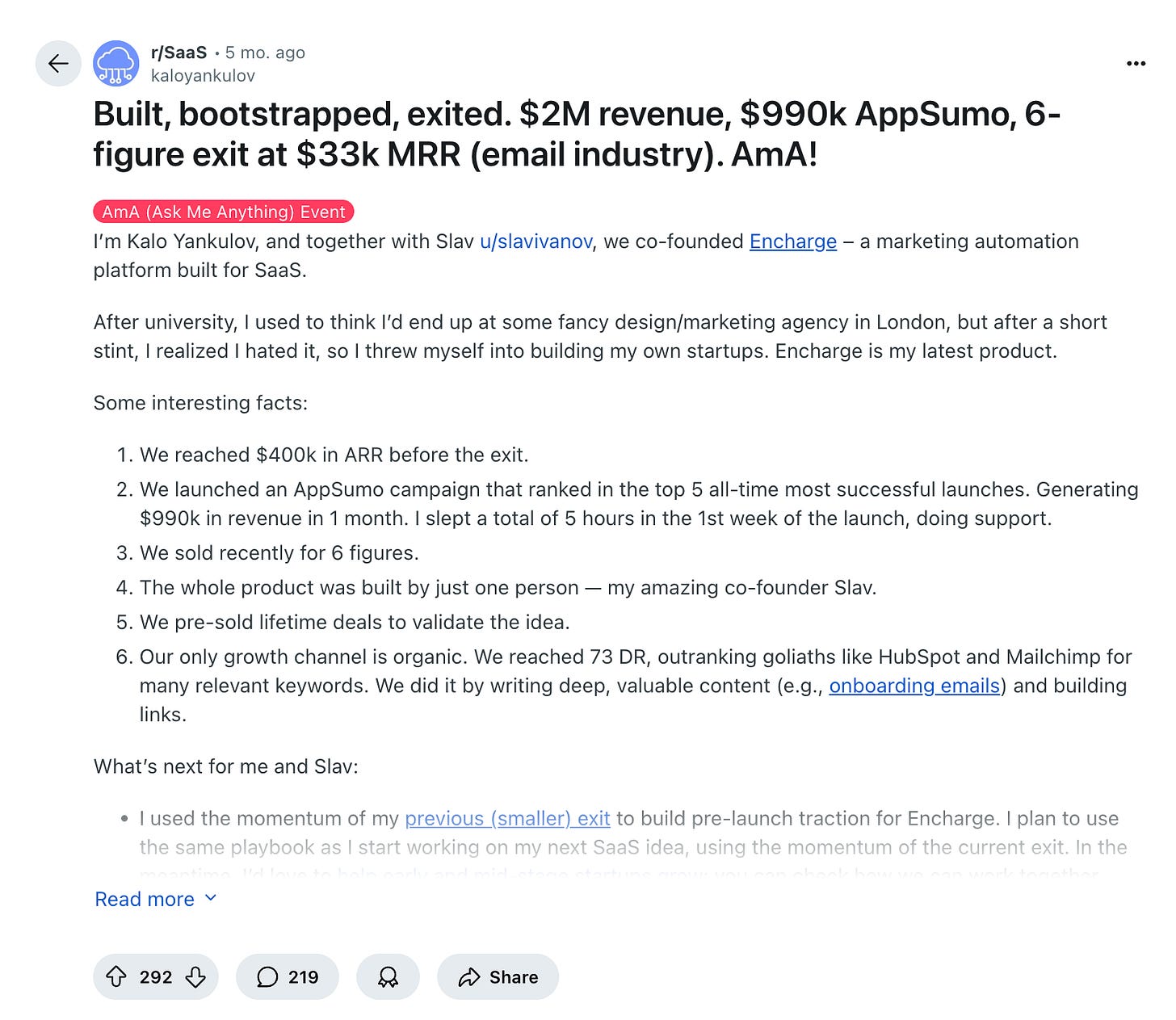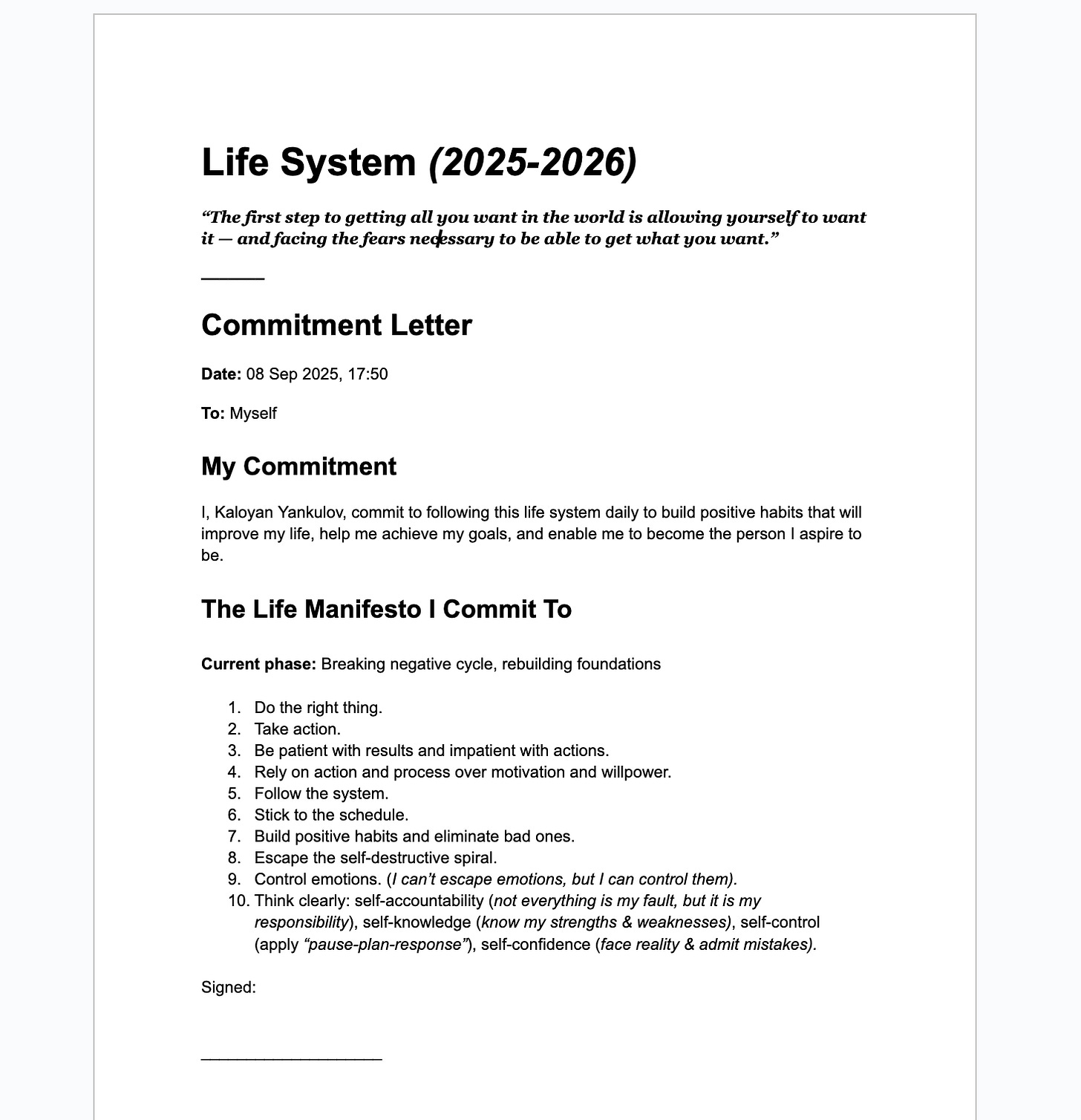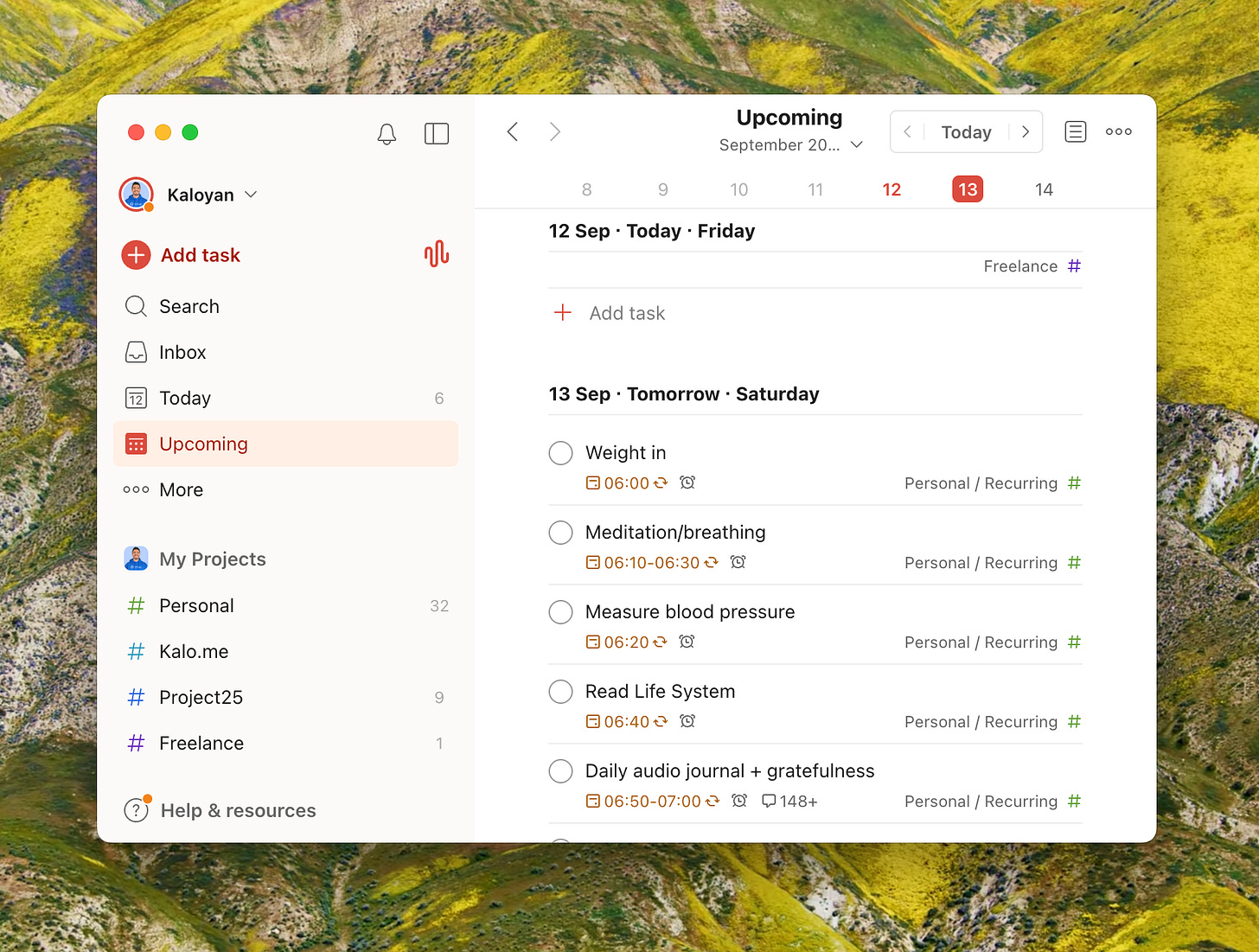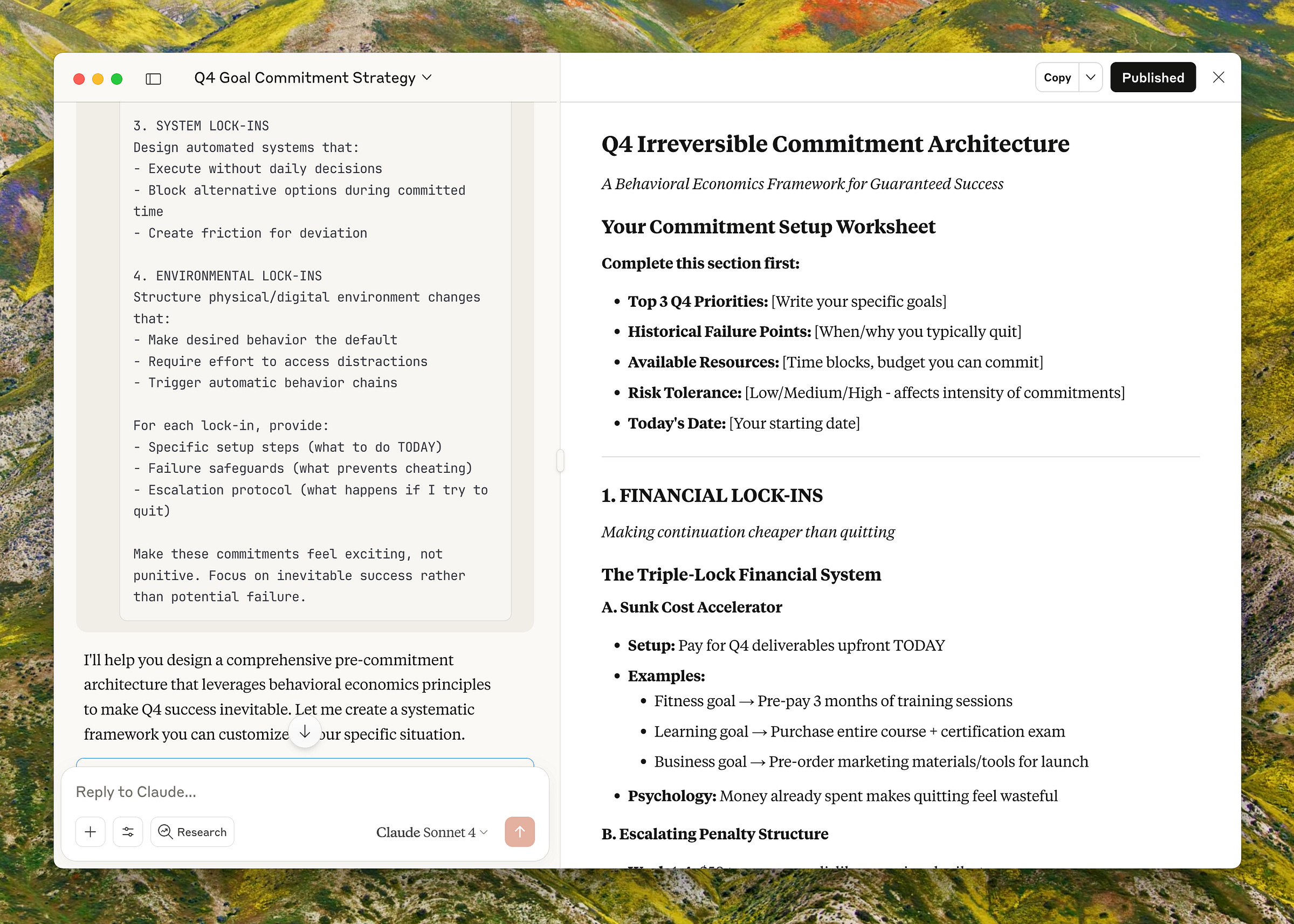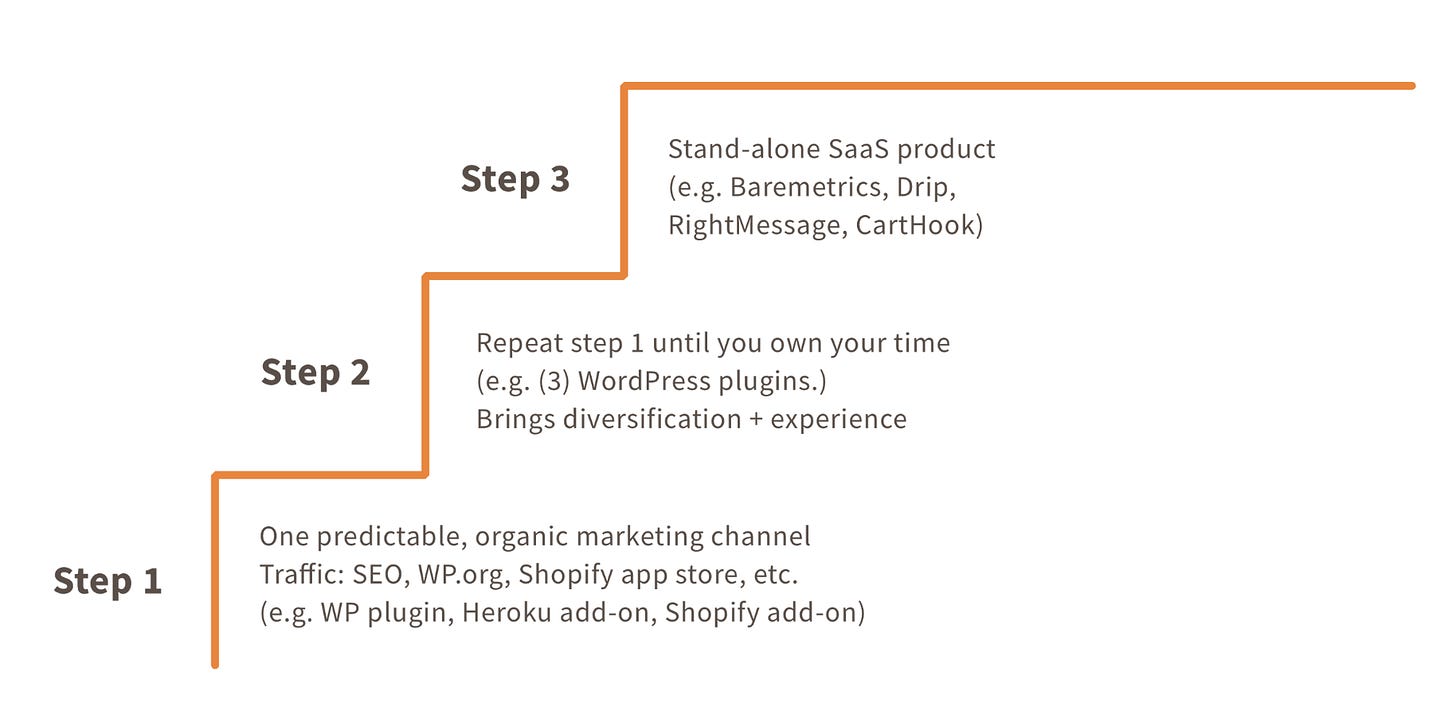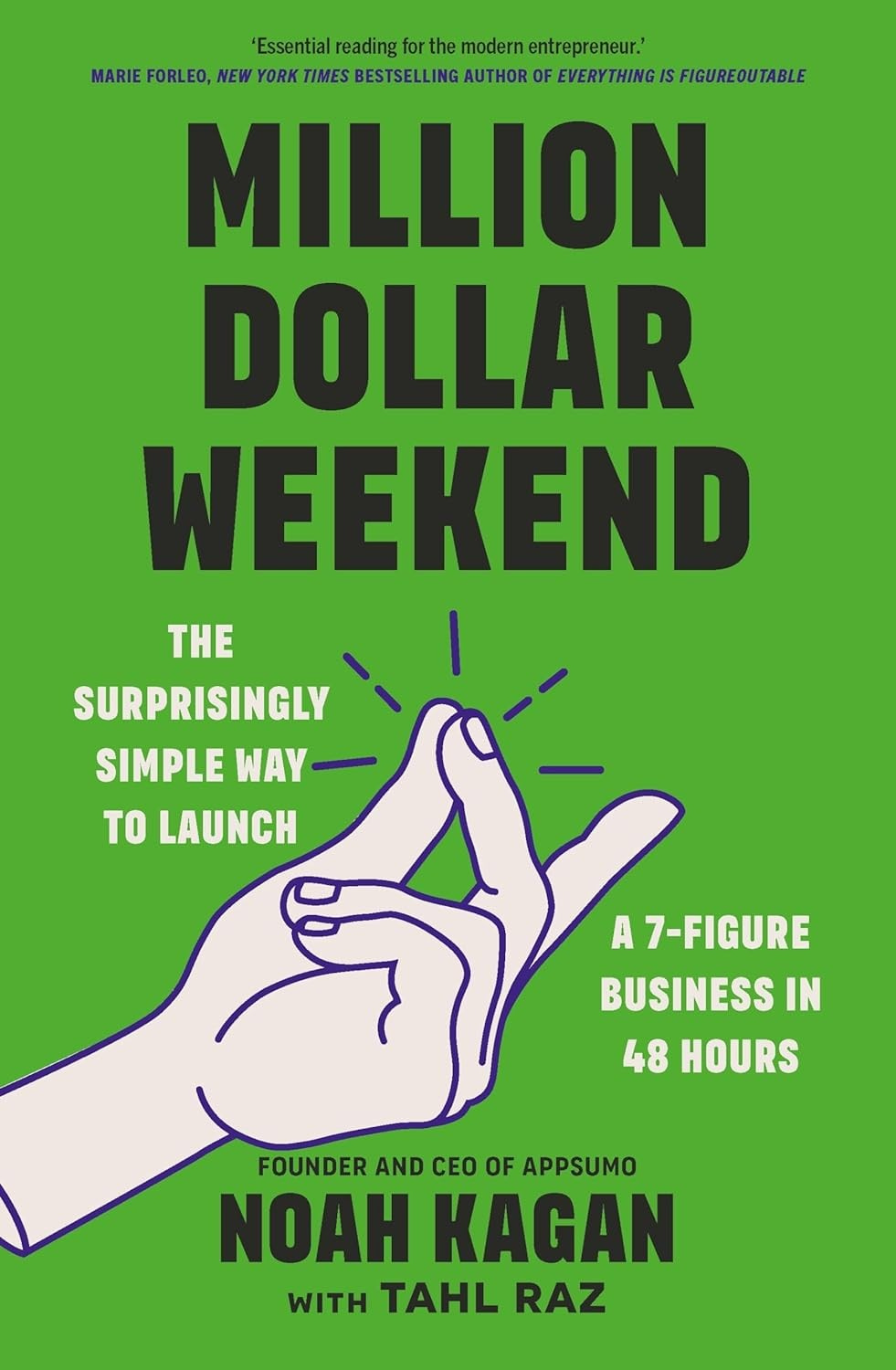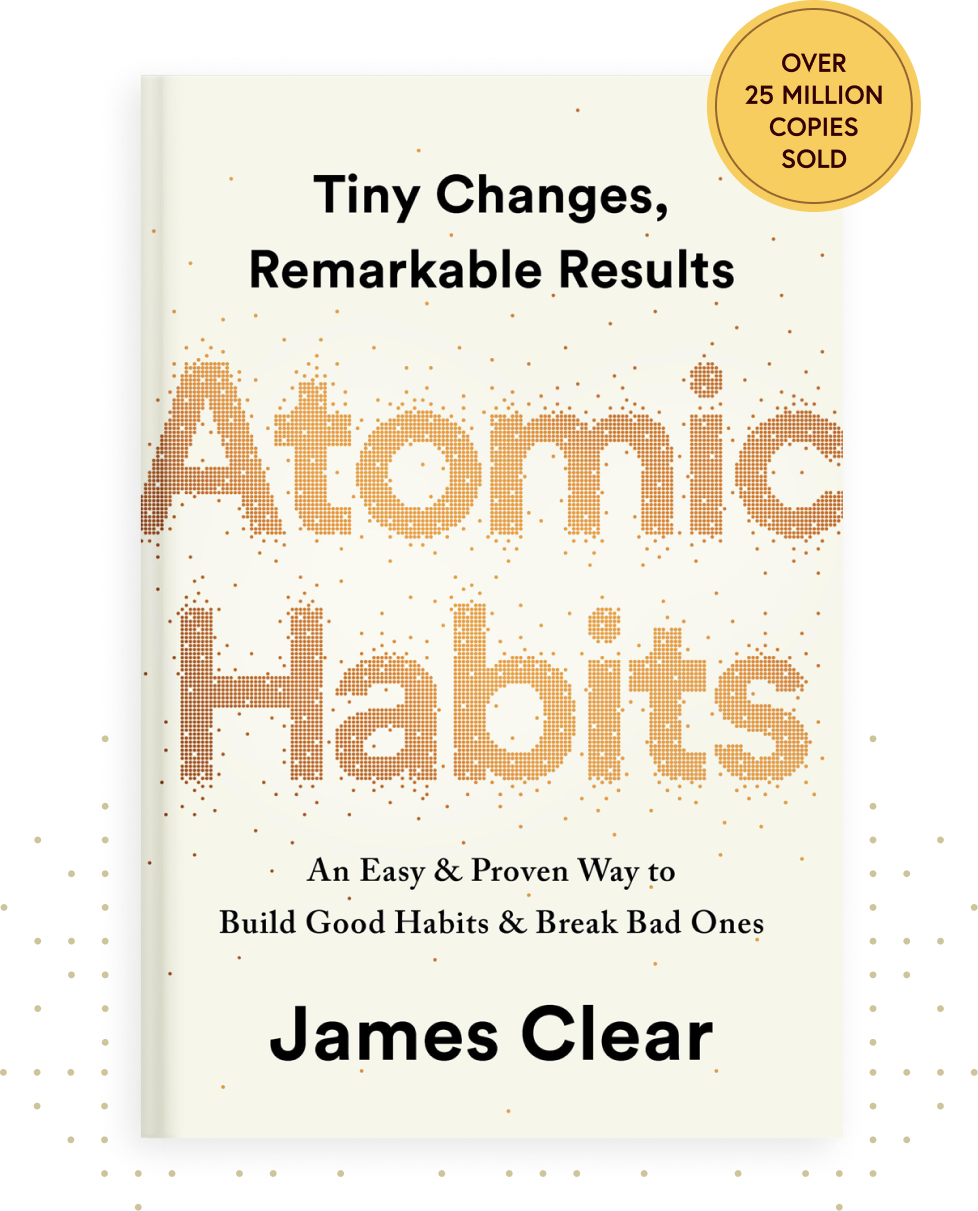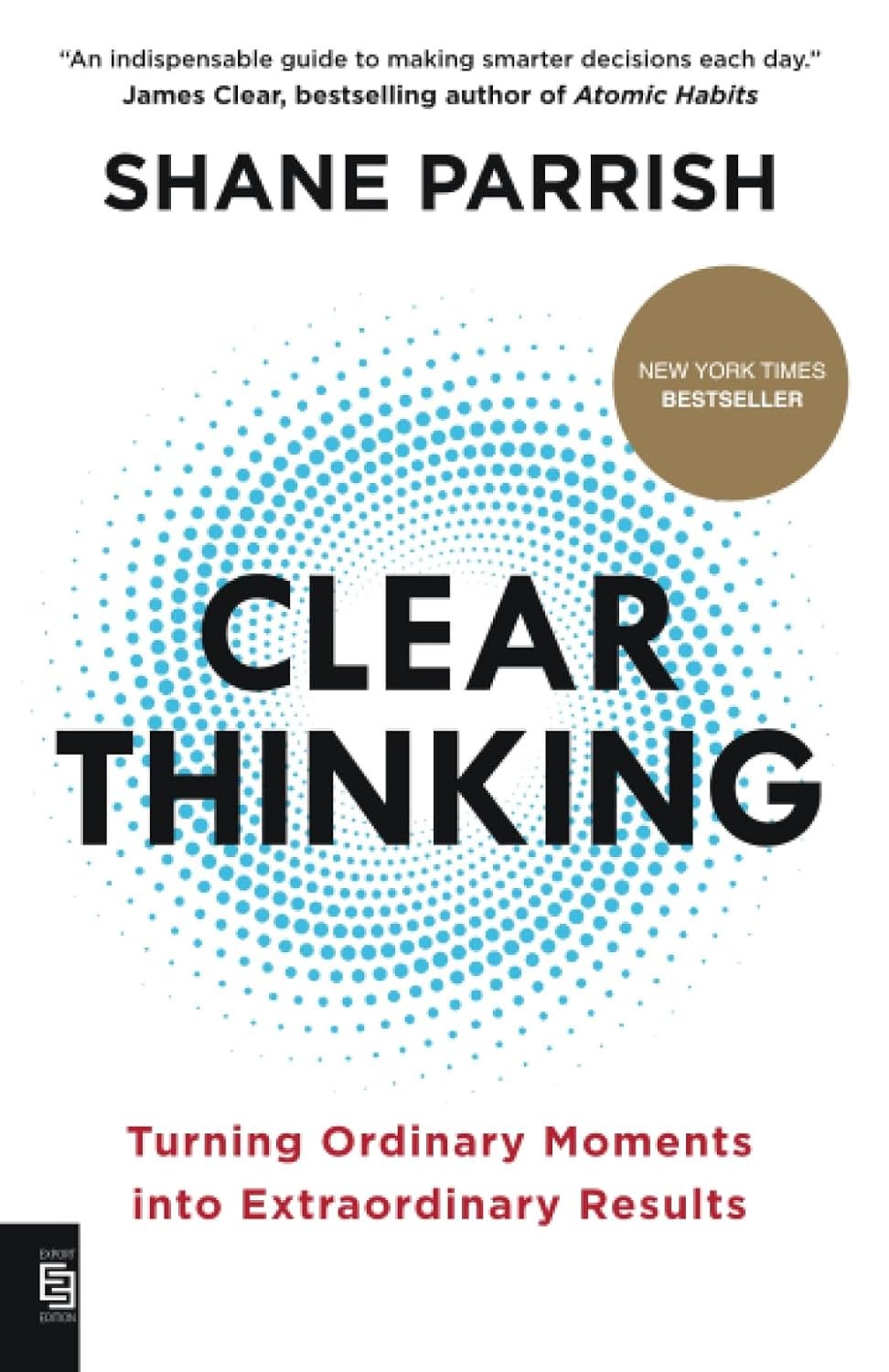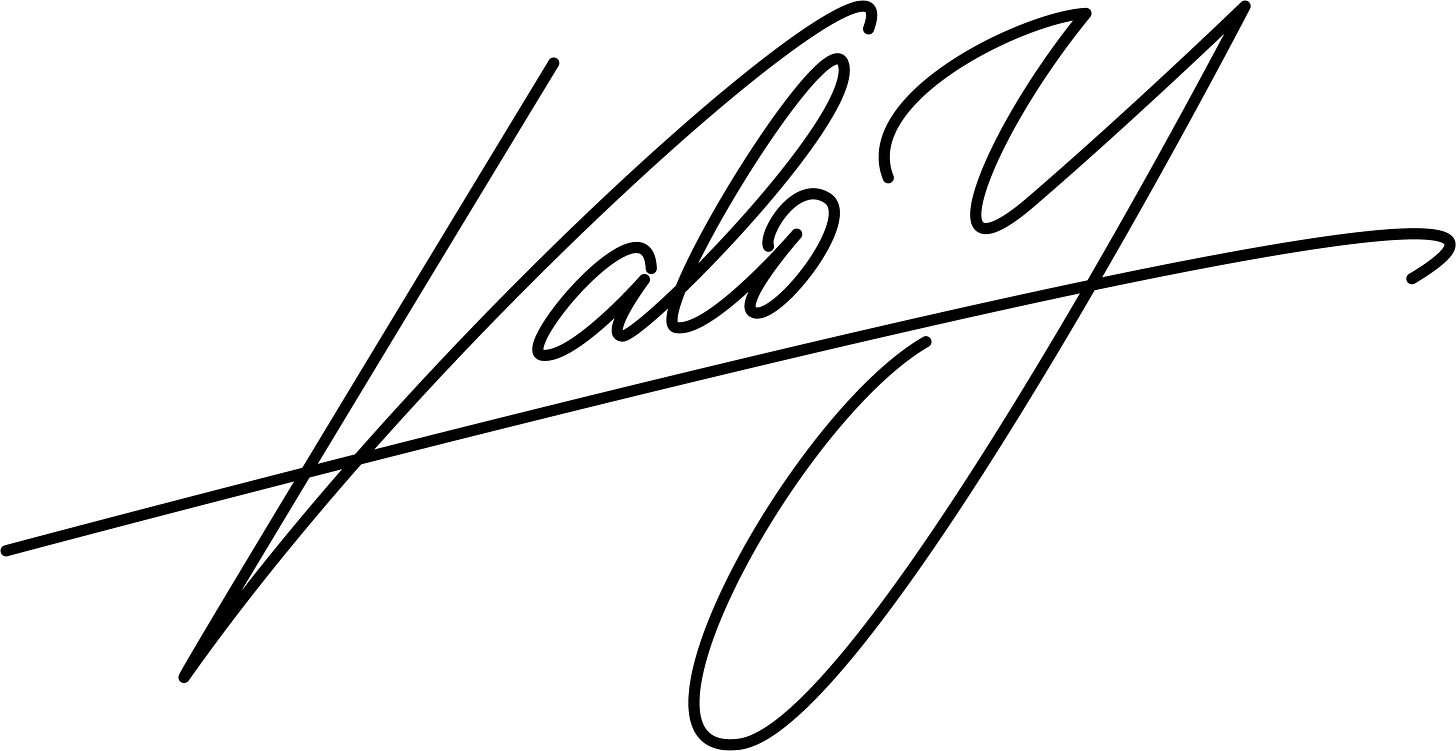From Exit to Restart
A Framework for Navigating Post-Exit Uncertainty
TL;DR
After I sold Encharge, I discovered that launching again is harder. I'm sharing my personal "Life System". A simple framework combining daily habits, accountability measures, and mindset shifts to overcome post-exit paralysis and build momentum for my next venture.
Everyone claims launching your first business is brutal. They're wrong. Starting your second is infinitely harder. Now you know exactly what hell awaits.
I'm Kalo, founder of Encharge. We launched Encharge in 2019 and sold it in 2024. When we started the business, I had less than $1,000 in my bank account, no job, and 0 outside funding. Encharge generated ~$2M in all-time revenue, and we sold it in 2024 for $800k.
Now it's time to dance this dance again.
I'll use this space to #buildInPublic and share every single bit of my second startup rodeo. As Justin Welsh said, “I'm walking through my own mess in public.” If you learn anything from this, then great.
This blog will focus on validating my next idea, driving growth, increasing sales, and breaking stuff around.
However, today I'd like to talk about something more personal. If you are not into this stuff, feel free to skip to the post I’ll share next week, which will be purely business-focused. That said, I strive to provide actionable tips in all my content.
The Post-exit Paradox
After selling Encharge, I found myself in what should have been the best position of my life: in my 30s, financially all right, healthy, and free. Yet, I felt terrible.
The freedom from the exit paralyzed me. The startup I had dedicated years to was gone. While friends were having human babies, I had just "sold my baby," leaving me feeling purposeless.
Result: too many hours in the gym, filling the void with external activities, and procrastinating.
The Midas touch of exited founders is fake news. Nobody knows what they are doing; the only thing you carry on from your previous venture is the hard-working habits and grit.
Breaking the Pattern
"Enough is enough. I need to do something."
I told myself three weeks ago.
That's when I decided to start sharing my journey publicly. Partly for accountability, so the next time someone asks me "how's your new business going", I won't do the signature move of suddenly becoming super interested in my shoes.
My goal is to start the next business and share everything publicly.
But before focusing on business, I had to clear up some mind baggage.
I put together what I call a "Life System." The foundation of the business mindset. I wanted to start with a fresh canvas.
The Life System
It's a simple Google Doc containing my goals, manifesto, and daily practices. I’ve printed it and read it daily.
Here are the key components of mine, but frankly, you can just use anything that works and brings peace to you (if systems help, that is)
Core Principles (My 10 Commandments)
Do the right thing - 80-90% of the time, we know what's right, but don't always do it
Take action - Be patient with results, impatient with actions.
Rely on process over motivation - Systems beat willpower, especially on tough days
Follow your system and daily schedule.
Build positive habits, eliminate destructive ones.
Control emotions - You can't escape them, but you can wade through them like a leaf on water.
Practice self-accountability - Not everything is your fault, but everything is your responsibility.
Develop self-knowledge - Know your strengths and weaknesses
Exercise self-control - Use the pause-plan-response approach before decisions
Maintain self-confidence - Face reality and embrace making mistakes
The person I want to be
Someone with inner peace and joy
Master of emotions who acts with intention
Has purpose in work
Creates deep, meaningful connections with people I care about
These sound simple, but are incredibly hard to sustain when you're grinding daily.
Life System Fill-in-the-blanks Prompt
Life System Template (Year-Year)
“The first step to getting all you want in the world is allowing yourself to want it — and facing the fears necessary to be able to get what you want.”
Commitment Letter
Date: [Insert Date & Time]
To: Myself
My Commitment
I, [Your Name], commit to following this life system daily to build positive habits that will improve my life, help me achieve my goals, and enable me to become the person I aspire to be.
Signed: ____________________
The Life Manifesto I Commit To
Current phase: [Insert your current life phase]
[Manifesto point #1]
[Manifesto point #2]
[Manifesto point #3]
Think clearly:
Self-accountability → [your reminder]
Self-knowledge → [your reminder]
Self-control → [your reminder]
Self-confidence → [your reminder]
The Person I Want to Become
“I’m someone who [describe the future version of yourself].”
Yearly Goals ( [Start Date – End Date] )
Business
[Insert business goal #1]
[Insert business goal #2]
Mental Health
[Insert mental health goal #1]
[Insert mental health goal #2]
Physical Health
[Insert physical health goal #1]
[Insert physical health goal #2]
Finance
[Insert finance goal #1]
[Insert finance goal #2]
Daily / Weekly Habits
Physical Habits:
[Habit + Minimum Viable Habit (MVH)]
Work:
[Habit + MVH]
Education:
[Habit + MVH]
Mental:
[Habit]
[Weekly review habit]
✅ Rule of Thumb: Progress > Perfection. If I miss a day, restart immediately — never twice in a row.
Accountability: If I miss a habit twice in a row, I’m to [insert accountability consequence].
Weekly Schedule ( [Month-Year] )
Mon [Insert focus]
Tue [Insert focus]
Wed: [Insert focus]
...
⚡ Prompt Instruction:
“Fill in the blanks of this Life System template with my own details, and output a clean final version I can print and sign.”Daily Implementation
I use Todoist in conjunction with the Getting Things Done methodology to clear my mental bandwidth by de-loading tasks into the app. They recently added voice task creation.
For offloading startup ideas and any brain dump, I capture them via AI-transcribed voice notes for easy categorization.
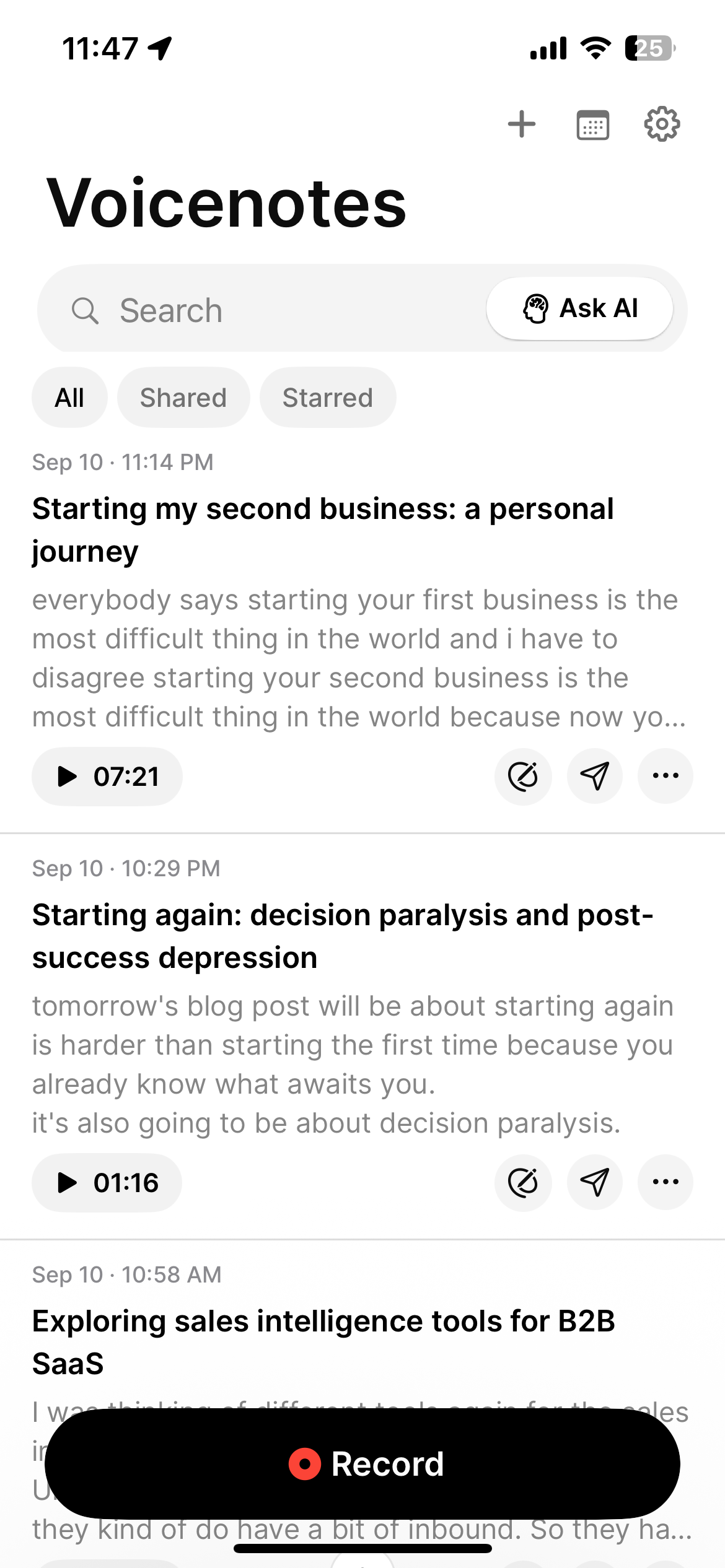
My habit system focuses on minimal meaningful actions. Progress over perfection, restart immediately after missing days. I have financial accountability with a friend who gets $60 if I fail to follow through.
Pro tip: Use these lock-in architecture prompts by Excelleng Prompts to design a fully-fledged accountability system. Here's an example:
Using Momentum from Previous Success
Similar to the "stair step concept" from Rob Walling (Drip/MicroConf): start small, then build larger products until you reach a fully featured SaaS.
I use the same concept, but applied to Go-To-Marketing. Force multiply the previous success. I'm leveraging momentum from selling Encharge, just as I used momentum from my earlier startup, Headreach, to launch Encharge (meta-ception).
By sharing the journey live, I aim to build accountability, gain insights from my network, and leverage the credibility from my previous exit, even though I missed some opportunities (like not having this outlet ready during my Reddit AMA about the exit).
What's Next
I'm currently in week three of working on my next startup. I'll be sharing weekly videos about the ideas I'm evaluating, customer development interviews, and everything I'm doing to validate the next business idea. Next week, I’ll do a retrospective video on what has happened in the last three weeks. Make sure to subscribe to learn more.
It's going to be a long road, but hopefully an exciting one filled with practical advice on marketing, sales, and growth. Subscribe to follow.
Let’s get to (second ;) business!
Books Mentioned In the Video & Post
"The Million Dollar Weekend" by Noah Kagan
A practical guide to starting businesses quickly and validating ideas. Kagan, founder of AppSumo, focuses on taking immediate action rather than endless planning. The book emphasizes the importance of allowing yourself to want success and facing the fears necessary to achieve it.
"Atomic Habits" by James Clear
A comprehensive guide to building good habits and breaking bad ones. Clear explains how small, incremental changes compound over time to create remarkable results. The book introduces concepts like habit stacking, the two-minute rule, and designing your environment for success.
“Clear Thinking” by Shane Parrish
A book focused on improving decision-making and mental models. Parrish, founder of Farnam Street, explores how to think more clearly by understanding cognitive biases, improving self-awareness, and developing better judgment. Much of it is common sense, but common sense is often what we need most.
Tools
Friends Sharing their Built-In-Public Journeys
Georgi Barnev building Hot Stocks today
WIlco de Kreij building WinningAds
Follow me:


